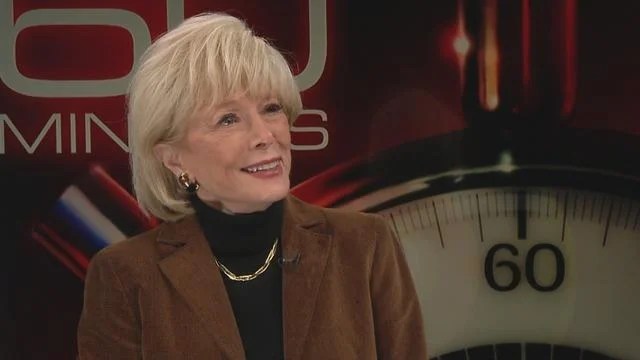For more than five decades, "60 Minutes" has stood as a hallmark of investigative journalism, captivating audiences with its in-depth reporting and compelling storytelling. The show's reporters have become household names, revered not only for their skills but also for their unwavering commitment to uncovering the truth. Each segment they produce encapsulates the essence of journalism—bringing light to hidden stories and amplifying the voices of the unheard.
As the world continues to navigate through complex issues, the role of "60 Minutes" reporters has never been more critical. They delve into topics ranging from politics and social issues to science and culture, providing viewers with an unfiltered look at the world around them. Their fearless approach to journalism and dedication to facts have earned them a reputation that resonates well beyond the television screen.
In a landscape where sensationalism often overshadows true reporting, the integrity of "60 Minutes" reporters remains a beacon of hope. Their meticulous research and captivating interviews challenge audiences to think critically about the information presented to them, encouraging a culture of informed discussion and awareness. This article will explore the lives and careers of these remarkable journalists, shedding light on their contributions to the field and the impact they have made through their work.
Who are the Most Notable 60 Minutes Reporters?
Throughout its history, "60 Minutes" has featured a range of talented reporters, each bringing their unique flair to the program. Some of the most notable reporters include:
- Mike Wallace
- Lesley Stahl
- Morley Safer
- Anderson Cooper
- Scott Pelley
- Sharyn Alfonsi
- Bill Whitaker
What Makes 60 Minutes Reporters Unique?
The uniqueness of "60 Minutes" reporters lies in their ability to blend rigorous research with compelling storytelling. They approach each story with curiosity and integrity, often spending months or even years investigating complex subjects. Their distinctive interviewing techniques and willingness to confront powerful figures set them apart from other journalists.
How Do 60 Minutes Reporters Prepare for Their Segments?
Preparation for a "60 Minutes" segment involves a meticulous process that includes:
- Extensive research and background checks
- Building relationships with sources
- Crafting thoughtful interview questions
- Filming and editing to create engaging narratives
What Are the Personal Details and Biographies of Iconic 60 Minutes Reporters?
To understand the impact of "60 Minutes" reporters, we can examine the biographies of a few iconic figures associated with the show. Here's a brief overview:
| Name | Birthdate | Notable Contributions |
|---|---|---|
| Mike Wallace | May 9, 1918 | Integral in shaping the show’s format, known for probing interviews. |
| Lesley Stahl | December 16, 1941 | First female correspondent; covered significant political and social issues. |
| Anderson Cooper | June 3, 1967 | Known for his empathetic interviewing style and in-depth coverage of crises. |
| Scott Pelley | July 28, 1957 | Focus on investigative reporting and major national stories. |
What Impact Have 60 Minutes Reporters Made on Society?
The influence of "60 Minutes" reporters extends far beyond the television screen. Their dedication to uncovering the truth has led to significant societal changes, including:
- Raising awareness on critical issues such as corruption, injustice, and inequality.
- Prompting governmental and corporate accountability through investigative reporting.
- Inspiring a new generation of journalists to pursue truth and integrity.
What Challenges Do 60 Minutes Reporters Face?
Despite their successes, "60 Minutes" reporters encounter numerous challenges, including:
- Facing pushback from powerful individuals or organizations.
- Dealing with the pressure of tight deadlines and high expectations.
- Maintaining objectivity amidst personal beliefs and societal biases.
How Do 60 Minutes Reporters Maintain Their Credibility?
Credibility is essential in journalism, and "60 Minutes" reporters take several steps to uphold their reputation:
- Fact-checking and verifying sources before airing segments.
- Maintaining transparency with audiences about their reporting process.
- Engaging in ethical journalism practices to avoid conflicts of interest.
What Future Trends Can We Expect from 60 Minutes Reporters?
As the media landscape evolves, "60 Minutes" reporters are likely to adapt to new trends, including:
- Utilizing digital platforms to reach broader audiences.
- Incorporating multimedia elements into their storytelling.
- Exploring emerging global issues that resonate with viewers.
How Can Viewers Support 60 Minutes Reporters?
Viewers can support "60 Minutes" reporters by:
- Engaging with their content through social media channels.
- Providing feedback on stories and suggesting topics for investigation.
- Advocating for the importance of investigative journalism in society.
In conclusion, "60 Minutes" reporters play an indispensable role in the world of journalism. Their unwavering commitment to uncovering the truth and providing in-depth analysis makes them a vital resource for viewers seeking to understand complex issues. As the landscape of journalism continues to change, the legacy of "60 Minutes" and its reporters will undoubtedly remain a powerful force for accountability and truth in reporting.




